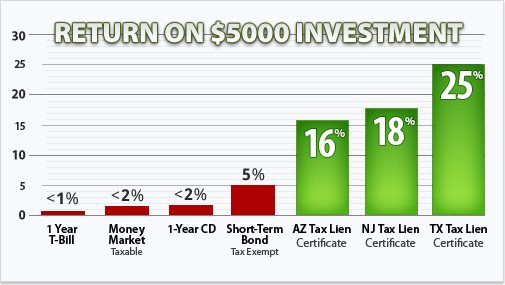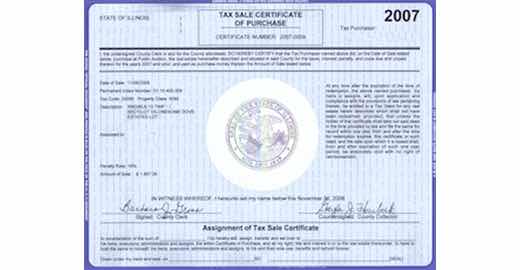All Categories
Featured
Table of Contents
If you are interested in the tax lien foreclosure process, you ought to call an attorney so you understand and consider the dangers of this kind of investment. - tax lien investing course
Tax obligation lien sales are one means that cities and regions try to redeem several of the general public dollars they've invested keeping these residential or commercial properties abandoned by private owners. However, as we'll explain in this post,. When real estate tax are thought about delinquent, neighborhood federal governments typically concentrate on supplying notice of delinquency and trying to gather the overdue amounts from the proprietor.
Nevertheless, this procedure normally takes years. If a proprietor has strolled away and is resistant to pay taxes or keep the residential or commercial property, the city needs to invest tax obligation dollars to preserve the residential or commercial property. These costsboarding up the structure, cutting thick grass and weeds, responding to fire and cops gets in touch with the residential or commercial property, and moreadd up

Owners that have dropped on difficult times absolutely need every effort to keep them out of delinquency and in their homes. Usually, if the residential or commercial property is vacant and worn-out, we should presume the proprietor has picked to abandon their interest in the residential property and that they are "unwilling" to pay (though circumstances earlier in the process may have required their hand).
Are Tax Liens A Good Investment
Take, for instance, a single-family home where the proprietor has actually long since strolled away. For many years the local federal government has actually needed to step in and get rid of garbage discarded in the yard, board up the doors and windows, and reply to calls regarding illicit task on the residential or commercial property. All these solutions set you back the local federal government taxpayer bucks.
In numerous states, those expenses can be collected likewise as the unpaid taxes, however not in all. (Something that Neighborhood Progression highly promotes in favor of.) Eventually, the complete financial debt comes to be better than what the property might cost. In a tax obligation lien sale (or tax obligation certification sale) the local government commonly holds a public auction where the winning prospective buyer accepts pay the most money for the right to impose the tax obligation lien, starting with a minimum proposal of at the very least the taxes possessed, plus relevant passion, charges, and expenses.

When a federal government offers the tax obligation lien they are generally offering to a private customer the neighborhood federal government's authority to collect the financial debt for in advance repayment of the taxes owed. The customer's acquisition usually includes the capacity to gain future passion, in addition to recover related fees and prices incurred by the purchaser, if the homeowner pays the tax debt.
This is, in essence, privatization of a core government feature: taxation. Tax obligation lien sales are specifically poor when it concerns vacant, deserted, and scrubby residential or commercial properties because they prolong the period prior to a residential or commercial property can be moved into the hands of a new, much more accountable owner. Personal tax obligation lien buyers hold the financial obligation, but they do not own the titlethe legal right to ownership of the propertyand in a lot of cases, they have no rate of interest in getting it.
Tax Lien Investing Basics
Considering budget cuts, regional federal governments in several states have actually minimized in-house real estate tax collection and enforcement initiatives and sought to tax obligation lien sales as a quick infusion of revenue - tax lien investing secrets (what is tax lien investing). Lots of counties select or are mandated by the state to offer tax liens because it contracts out collection and commonly brings in very required money previously in the collection process
By moving the city government's rate of interest in and enforcement of the tax obligation lien to an exclusive customer, local governments shed a lot of their flexibility: flexibility to get vacant properties that the private market doesn't desire, or to assist the owner prevent shedding their residential or commercial property. With vacant buildings, there is a much greater opportunity that the private purchaser isn't curious about the property itself.
Tax obligation lien sales can trigger harm in historically disinvested areas. In a depressed real estate market, less proprietors have the ability to redeem the amount of the financial obligation marketed to a tax obligation lien buyer. These locations are ripe for a various type of tax obligation lien investorspeculative owners seeking to get buildings on the low-cost by seizing on the real estate tax lien, bleeding what little equity is left by renting out a low quality property to prone renters, and after that abandoning the property when they have actually earned back their financial investment.

Not all state regulations provide local governments the power to interfere in this cycle. In either case, the residential or commercial property stays uninhabited and in limbo, all the while imposing substantial expenses on its neighbors and taxpayers. It's understandable that numerous regional governments transform to tax lien sales because they assist money important civil services.
If the neighborhood federal government rather markets the residential or commercial property (also known as the "tax obligation deed"), as opposed to the tax financial debt, after that they are in control of what takes place to the residential property and the enforcement process if the owner remains to not pay the residential property tax owed. The federal government will certainly offer the owner an affordable time to pay back the tax financial debt, after which the government will foreclose its passion in the tax obligation lien and the proprietor's right of redemption.
From their inception, these auctions were venues for investors to make money through exploitation. In very early 20th-century cities, well-known "tax obligation sharks" like Chicago's Jacob Glos and New york city's Charles Wiltsie accumulated lot of money by acquiring up ratings of tax liens on homes, billing their owners excessively high total up to eliminate the lien, or waiting until the due date for settlement passed and asserting the deed.
Investing In Tax Lien Certificates Online

Phone call to abolish tax obligation lien sales and overhaul tax misbehavior legislations have periodically erupted. Typically, they have can be found in response to situations of poor, usually elderly house owners who shed their homes to unscrupulous tax obligation purchasers over little tax obligation financial obligations. With a few exemptions, state legislatures have withstood architectural reforms (tax lien investing scams).
Those that have actually settled their home loans (primarily senior citizens or individuals who had inherited a household home) need to likewise find the cash to pay real estate tax. This clarifies why 70 percent of the homes marketed at tax obligation lien sales are had outright. It is well for states to take on an even more humaneand much more effectivesystem for residential or commercial property tax enforcement.
Table of Contents
Latest Posts
Tax Sale Properties Listings
Back Taxes Houses For Sale
Tax Property Foreclosures
More
Latest Posts
Tax Sale Properties Listings
Back Taxes Houses For Sale
Tax Property Foreclosures